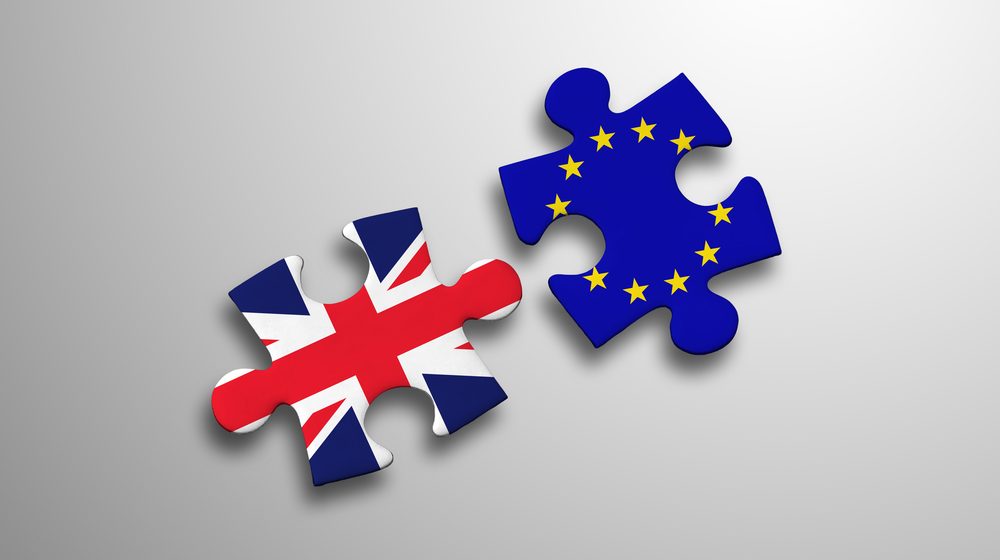As Britain formally triggers the doleful negotiations to exclude itself from the mainstream of European politics and economics, Prime Minister Theresa May refuses to use the word “divorce” to describe what is happening. My wife, a retired family lawyer and mediator, thinks May could be correct. After all, the family house we are exiting still contains much of our history and family silver, as well as our future economic interest. In that sense, divorce is scarcely an option.
Britain has not been as insular an island as some people take it to be. From our reigning royal family (which is German) to our exports (overwhelmingly to Europe), we have helped to shape and in our turn been shaped by developments in the rest of Western Europe. We are separated by just 20 miles (33 kilometers) of water – these days, apparently a very wide 20 miles – at the Strait of Dover.
So why are we leaving? The cause is a mixture of frustration, delusion, mendacity, and bloody-mindedness. We were fed up with Europe’s inability to tackle some of its biggest challenges – from competitiveness to immigration – without seeking to acquire more central powers.
In addition, our political leaders have for years played into the hands of those hostile to the EU, by appearing to accept any and every criticism of it, many of them a compound of falsehoods. We refuse to see ourselves for what we are: a mid-size country that no longer rules much of the world. We are too easily persuaded that you cannot be a patriot without being a nationalist.
We can and should manage the consequences of this break-up without bringing further woes down on our heads. But the process of separation thus far doesn’t offer great hope.
The Brexit referendum last June was itself a disaster. A parliamentary democracy should never turn to such populist devices. Even so, May could have reacted to the 52 per cent vote to quit Europe by saying that she would hand the negotiations to a group of ministers who believed in this outcome and then put the result of the talks in due course to parliament and the people. Instead, she turned the whole of her government into a Brexit machine, even though she had always wished to remain in the EU. Her government’s motto is now “Brexit or bust.” Sadly, we will probably get both.
So what happens next? No one has a clue. The cliff beckons; the lemmings are lining up.
We know that almost half our exports go to the EU, five times more than go to the entire Commonwealth and six times more than to all the BRICS countries. But we have given up on staying in the single market (which would require us to accept European jurisdiction and the free movement of labor) or the customs union. Apparently we want a free-trade agreement with the EU on our own terms, covering our main industries and services.
May’s foreign secretary, Boris Johnson, argues that the cards are in our hands in these negotiations, because Europeans want to continue selling – Prosecco, for example – to us. But anyway, May’s ministers say, it doesn’t matter if we have no deal at all. We will simply walk away. No deal would not necessarily be a bad outcome, they insist, because the world is eager to do more business with us, which will be cheaper in the future as sterling continues its steady decline.
All of this, to return to the word May won’t use, feels like a rather unamicable divorce. Every twist and turn in the talks will be accompanied by xenophobic outrage on the right wing of May’s Conservative Party and in the tabloid press to which she is now so beholden.
It is bad enough that we are setting about wrecking our economy, which will make the poor poorer and even the enterprising more vulnerable. On top of this, we are overturning many of the rules and conventions of our parliamentary democracy, which should encourage the search for consensus and compromise, and shun majoritarianism.
A mere 52 per cent of British voters made the decision to exit the EU last June. What exactly they voted for remains a mystery. But they have spoken, May and the Brexiteers insist. So that settles it. Ignore, they say, what the “enemies of the people,” the judges in our independent courts, have to say. Shout down any point of view inquiring about what is actually happening to us. Attack the reputation of anyone – business manager, politician, or civil-society leader – who favors EU membership or an open discussion of it. Tell the BBC that it must accept Brexit enthusiastically or face popular wrath. Above all, close down parliamentary debate – all in the name of “restoring parliamentary sovereignty.”
This divorce is not going well. And the proceedings have only just started. There is a long road ahead. Heaven knows what sort of country we will be at the end of it. But, as with any divorce, we can be fairly confident that it is the children who will suffer the most.
Copyright: Project Syndicate, 2017.





